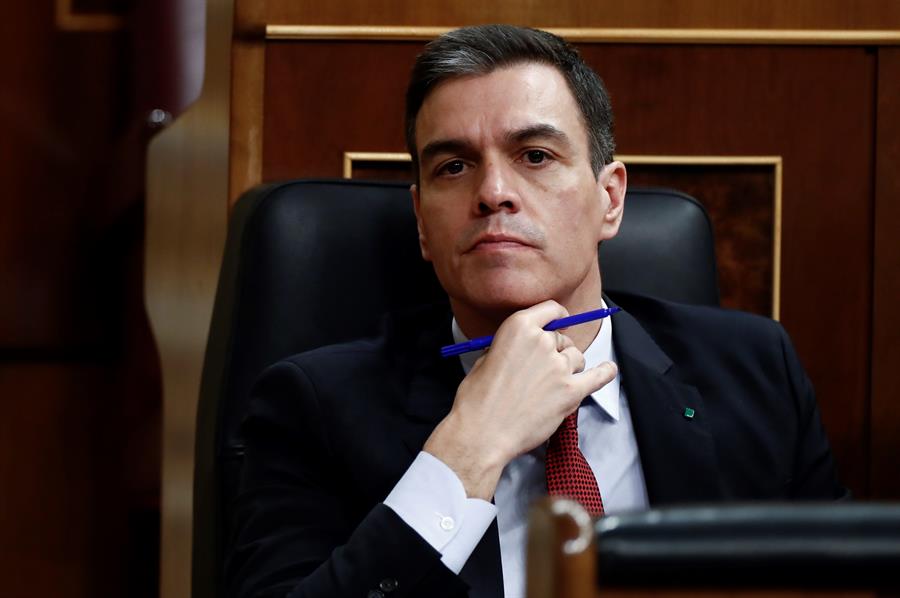
The management of the coronavirus pandemic has served as a thermometer of the control that governments exercise over the population. In the case of Spain, it is red-hot.
The socialist coalition government headed by Pedro Sánchez has decided that during the coronavirus crisism the press conferences at the Moncloa Palace will be held with authorized questions. About 100 journalists signed a manifesto titled La libertad de preguntar (The freedom to ask questions), showing their rejection of this decision.
The social media hashtag #LaLibertadDePreguntar has caught the attention of politicians and the media who claim that without freedom of expression, there is no democracy.
Espero un plante masivo de los medios de comunicación españoles. Sin excusas.#LaLibertadDePreguntar https://t.co/jGAEUP01WQ
— Beatriz Becerra ?? (@beatrizbecerrab) April 1, 2020
This attack on freedom of expression, and therefore on the so-called fourth power (because of its influence on society), the press, was condemned as a warning of the growing abuse of power by the Spanish government.
It is also unconstitutional because of the way it has proceeded. Article 20 of the Spanish Constitution recognizes the fundamental right “to freely communicate or receive truthful information,” and the exercise of this right “cannot be restricted by any kind of prior censorship.”
This is why journalists accuse the government of “enjoying far greater powers than usual, so it is important for the press to do its job of control, especially when the parliament has greatly limited its activity.”
They insist that the foremost way to exercise this function from journalism is through questions -and cross-examinations- to members of the government.
They claim that the Secretariat of State for Communication (SECOM) has organized a system in which all questions sent by journalists necessarily pass through the filter of the secretary, who is personally responsible for asking them to the president, ministers, or technicians.
Journalists say that “if members of the government are the ones asking questions to the government, it reveals a lack of transparency and an interest in controlling the information.”
They openly call it “a new form of censorship of the media and an intolerable disdain for the very citizens, who are called upon to make enormous efforts, which are largely being strictly complied with.”
For all these reasons, they demand the immediate change of procedure for all press conferences and appearances of members of the government and request the support of communication professionals to a non-partisan claim, which will improve the democratic quality in Spain and the exercise of civil rights protected by the constitution, the maximum guarantee of coexistence.
A dictator is one who abuses his authority
According to the dictionary of the Royal Spanish Academy, a dictator is someone who abuses his authority, and in modern times, a person who seizes all political powers. Therefore, this definition applies to Pedro Sánchez, the president of Spain, insofar as he restricts freedom of expression.
Moreover, Podemos, the party of its vice-president Pablo Iglesias, has expanded the power of the state not only in its theoretical conception but also in practice. In a time of emergency, as in the case of the COVID-19 pandemic, instead of seeking to promote solidarity and forge alliances, the Spanish government rejected aid from the richest man in Spain, Amancio Ortega, arguing that the state should be sustained by taxes, not alms.
Everything within the state, nothing outside the state, nothing against the state,” is the signature phrase of the father of fascism, Benito Mussolini, which is perfectly applicable to both press censorship and the denial of private solidarity. For it does not allow either the questioning of the state or the provision of resources, much less humanitarian ones, outside the generous state that the socialist government intends to forge.
But the most aggravating factor is that amid a pandemic such as the coronavirus, the role of the press is paramount, as it reflects the transparency (or lack thereof) of a nation, and therefore the level of corruption. Because when the press is silent, the government is hiding something.
As in the case of China, where the COVID-19 outbreak originated, the communist regime has persecuted and even disappeared independent journalists.
China started out censoring coronavirus coverage
The most prominent case was that of Li Zehua, a news anchor from China Central Television (CCTV) who resigned to cover the news independently.
From a crematorium in Wuhan, Zehua reported that among the dead were migrant workers who celebrated the Chinese New Year (February 12) surrounded by 40,000 families. The journalist blamed the regime for allowing the celebrations amid an outbreak.
Fourteen days later, on February 26, Zehua filmed a live video, where, in the end, two state security agents entered her home. Since then, she has not posted anything again.
It is worth noting that censorship has been an aggravating factor in the spread of the pandemic. The first doctors who warned of the outbreak were arrested by the Chinese communist regime in December 2019. The first doctor died of the infection in February 2020. In March, the pandemic hit the rest of the world.
If China had shown transparency from the outset, the outbreak might have been contained or at least given preparation time to the other countries.
Instead, China kept quiet about what was going on. Now the socialist coalition government intends to apply the same technique in Spain that not only failed but had an incalculable cost to the world.
 Versión Español
Versión Español













